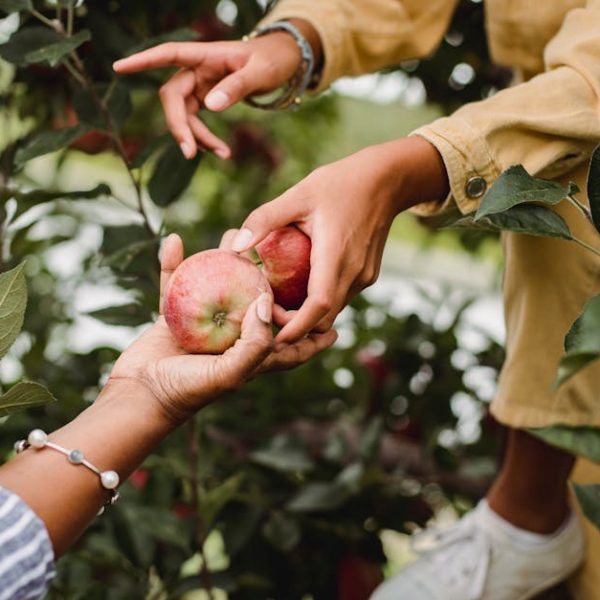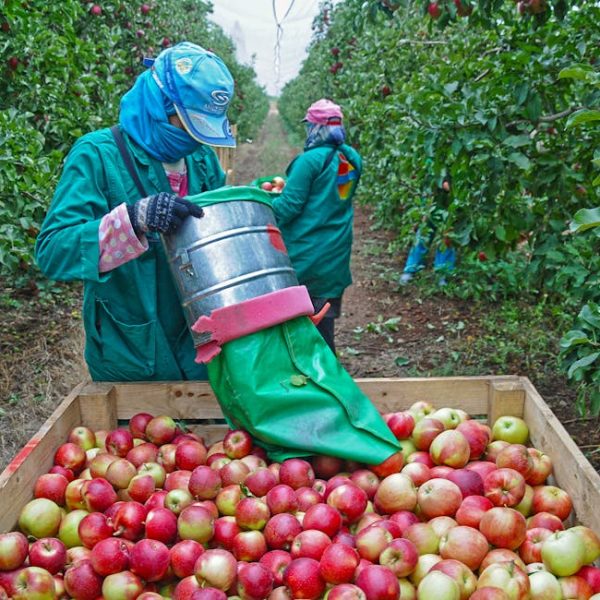Fertilizing blueberry bushes at the optimal time is important for any gardener wanting to reap a maximum, healthy and tasteful crop. Understanding the blueberry bush lifecycle and the right time to nourish them fundamentally enhances their productivity and longevity. In this article, we’ll delve into the vital role that nutrients play within different growth stages, discuss season-specific fertilization needs, and prescribe strategies for choosing the right fertilizer.
The Significance of Fertlizing Blueberry Bushes
The growth and productivity of blueberry bushes heavily rely upon proper fertilization. Nutrients like nitrogen, phosphorus, and potassium are necessary to stimulate leaf and stem growth, enhance root stability, and drive berry development. Their deficiency can lead to stunted growth, poor fruit production, and even premature bush death. That’s why it’s crucial to ensure that your bushes are not just fertilized, but that they’re getting the right nutrients at the right time.
Blueberry Bushes: Growing Seasons and Fertilization Demands
A blueberry bush’s nutrient needs vary throughout the year, guided by its growth cycle. Their dormant winter period doesn’t command much by way of nutritional needs. But once early spring takes over, the buds start to swell and their growing season commences.
Here’s a snapshot of the typical blueberry bush cycle:
January to March: Dormant period.
April to June: Blossoming period – the beginning of the growing season.
July to August: Fruit maturation period – the peak growing season.
September to December: Post fruiting and preparation for dormant period.
Fertilizing in Spring: The Prime Time for Blueberries
The optimal time for fertilizing blueberry bushes is early spring, just as the buds begin to break dormancy. At this stage, nutrients help foster blossoming, fruit set, and vibrant foliage, setting the stage for a healthy growing season. However, too much of a good thing can harm your bush. Over-fertilization can scorch the roots, killing the bush, while under-fertilization will yield weak growth and small, tasteless fruits. So, striking the right balance is essential.
Maintaining Nutrient Supply: Summertime and Fall Tips
While their primary fertilization should occur in spring, blueberry bushes continue to require nutrients throughout the summer. You’ll notice lush, green foliage and bustling fruit growth at this time. The nutrients absorbed will also help the plant prepare for the dormant period during winter. While not as aggressive as spring fertilization, a lighter, sustained application gives the bush support for its most active growth phase.
Once fall arrives, nitrogen applications should cease. This allows the plant to harden off in preparation for winter. Although the bush will be largely dormant in the winter months, a small application of potassium aids in winter survival and provides a kick-start for when the cycle restarts in spring.
Selecting the Best Fertilizer for Your Blueberry Bushes
Nitrogen, phosphorous, and potassium are indispensible for blueberry growth. But they’re not alone. Micronutrients like zinc, iron, and manganese also play a critical role. Therefore, choose a fertilizer that delivers a complete nutrient package. Some blueberry-favorable fertilizers include ammonium sulfate, urea, or a balanced blend like a 18-25-12 mix (nitrogen-phosphorus-potassium). Test your soil pH before fertilizing to ensure it is in the optimum range of 4.5 to 5.5, which allows the blueberry bush to better assimilate nutrients.
Remember, every blueberry bush is unique and may require specific fertilizer blends and schedules depending on its variety, age, soil type, and local climatic conditions. With careful planning and timely execution, you can ensure your blueberry bushes are well-nourished and bountiful.
The Value Behind Fertilizing Blueberry Bushes
Green-thumbs agree, the quest for plump and flavorful blueberries begins with proper nourishment of your bush. Like tuning a piano, your blueberry bushes require constant attention and fine-tuning, with fertilization playing a pivotal role.
- Fertilization enhances bush health: Providing essential micronutrients like nitrogen, phosphorus, and potassium strengthen stems, invigorate leaf development, and bolster root stability.
- Fertilization boosts fruit yield: Simultaneously, these nutrients aid in fruit development, leading to a bountiful harvest of juicy, mouthwatering blueberries.
Remember, fertilizing your blueberry bushes not just amplifies the yield but also enhances the quality and taste of your blueberries – all the makings for that perfect, tart and sweet pie you’ve been craving!
Seasons and Fertilization: Getting It Right with Your Blueberry Bush
To nail your blueberry bush fertilization routine, you must understand their annual growth cycle. Let’s break down the typical blueberry bush growth timeline:
- Winter (January-March): The bush is dormant, reserving energy for the growing season.
- Spring (April-June): Green shoots spring forth, commencing the growth season.
- Summer (July-August): The bush is in full swing, with fruits ripening to perfection.
- Fall (September-December): Growth slows down as the bush transitions towards dormancy.
By aligning your fertilization schedule with these seasonal changes, you’ll give your blueberries the best chance to flourish.
Spring Fertilization: Your Blueberry Bush’s Favorite Season
Spring marks the budding phase, making it the optimal window for fertilization. As your bush shakes off its winter slumber, it begins craving nutrients to kick-start leaf and fruit development – that’s where fertilizing comes in!
- Pro tip: Fertilize as the buds start to break dormancy, feeding your bush when it’s most receptive to nutrients.
But like Goldilocks’ porridge, you need to strike the right balance – neither too much nor too little. Too much fertilizer can burn roots, damaging or even killing your bush. Conversely, inadequate fertilization stunts growth and leads to small, tasteless berries. Practice makes perfect, so don’t fret if you don’t get it right the first time!
Summer and Fall Fertilizing: Aiding Continuous Growth
While spring holds prime fertilizing season, your blueberry bush appreciates steady nourishment all year round. Like refueling your car’s tank, summer fertilizing keeps the momentum going, supporting lush leaf production and vibrant fruit growth.
- Checklist: Light, steady fertilizing during summer aids continuous growth and better preps your bush for the winter dormancy.
As fall appears, lay off nitrogen-heavy fertilizers. This gives your bush a chance to toughen up – or harden off – for the incoming winter. However, a dash of potassium helps brace your bush for winter and imparts an energy reserve for spring’s growing journey.
Finding the ‘Berry Best’ Fertilizer for Your Bush
Choosing the correct fertilizer begins with understanding your blueberry bush’s nutritional needs. These perennial bushes require a well-rounded diet:
- Nitrogen for leaf and stem growth
- Phosphorous for strong roots
- Potassium for overall system wellness
- Then, there’s the lesser-known but equally vital micronutrients like zinc, iron, and manganese
Picking the right blend ensures a balanced nutrient profile for your bush. But remember, the ‘right’ fertilizer may vary depending on your soil pH, the bush variety, and even the local climate. It’s always a good idea to test your soil before fertilizer application to ensure optimal uptake of nutrients.
With a keen eye for timings and the correct fertilizer, your blueberry bush will become the star of your garden, boasting the lushest leaves and tastiest berries. Isn’t it wonderful when a bit of planning and timely action bear such sweet fruits? Happy gardening!
Key Takeaway:
- Proper fertilization is vital to the growth and productivity of blueberry bushes, significantly impacting the quality and yield of fruits.
- The fertilization needs of blueberry bushes shift with the seasons, with spring being the prime time for applying nutrients that facilitate blossoming and fruit set.
- Summertime requires lighter, sustained fertilization, while fall is a period to cut back on nitrogen applications, permitting the bush to prepare for winter dormancy.
- The optimal choice of fertilizer for blueberry bushes provides a balanced supply of vital nutrients including nitrogen, phosphorous, potassium, and essential micronutrients.
- Soil testing before fertilizing is beneficial, as it helps in identifying and addressing specific nutrient requirements.
Cultivating blueberry bushes might seem task-laden initially, but breaking down the process into smaller steps can simplify it. By understanding the nutrient needs and seasonal cycles of your bush and selecting the right fertilizer, you can ensure a healthy growth stage. Remember to align your efforts with the rhythm of nature, and your blueberry bush will reward you for seasons to come with bountiful, juicy berries.
FAQs
Q: How does over or under-fertilizing affect my blueberry bushes?
A: Over-fertilizing can cause root burn, potentially killing the bush. Under-fertilization can result in weak growth and poor fruit production, yielding smaller and less tasteful berries.
Q: How often should I fertilize my blueberry bushes during summer?
A: A lighter, sustained application of nutrients throughout the summer is adequate. Remember, the goal here is to maintain the momentum of growth rather than to kick-start it as in spring.
Q: Why is it important to adjust fertilizer composition in the fall season?
A: In fall, cutting back on nitrogen helps the plant to harden off in preparation for the winter’s dormancy. While largely inactive in winter, a small application of potassium at this time aids bush’s survival and readies it for the next spring.
Q: How can I ensure I’m using the correct type of fertilizer for my blueberry bushes?
A: Well-rounded nutrition that includes both macronutrients (nitrogen, phosphorus, and potassium) and micronutrients (like zinc, iron, manganese) is crucial. Your choice of fertilizer depends on the nutrient profile of your soil, age of the bush, variety and local climate.
Q: Can I use the same fertilizer for blueberry bushes that I use for other plants?
A: Blueberries are acid-loving plants and require a lower soil pH for optimal nutrient absorption. Always check that the fertilizer is suited to the needs of blueberries and that it caters to their specific nutrient profile.
Your garden exploration is an exciting journey, and we hope this guide benefits your blueberry bush cultivation voyage. Feel free to share this article with other gardening enthusiasts and explore more gardening insights on our website.






